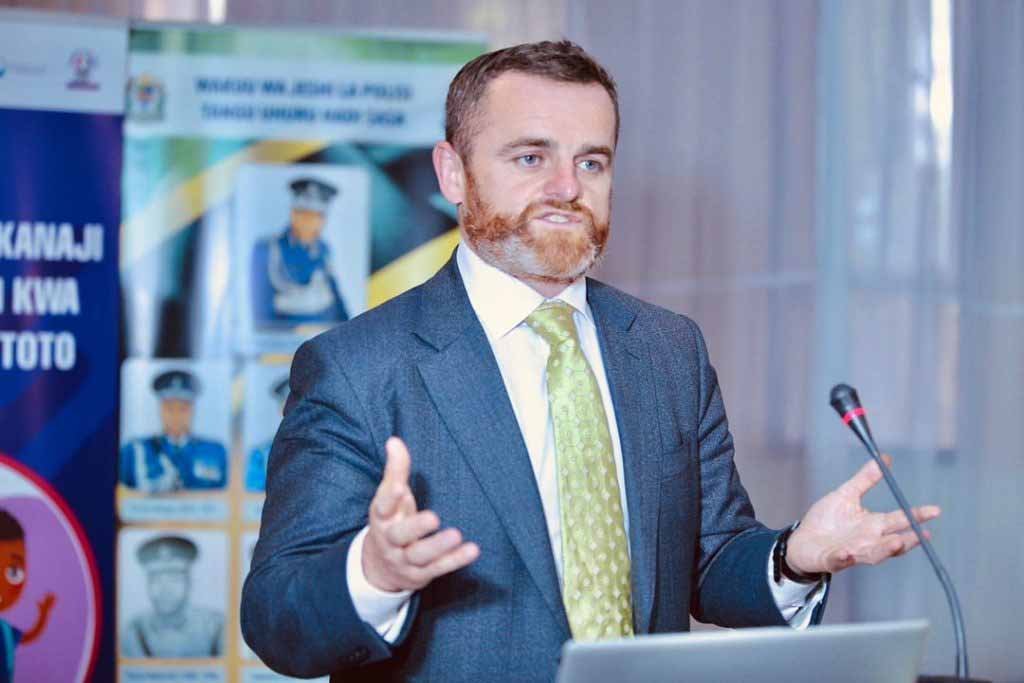EU Team Advises Ukraine Over Justice Challenges
“The security situation is fluid, the crimes continue to mount and the world’s eyes move on.”
A team within the European Union Advisory Mission Ukraine (EUAM) are offering guidance to Ukrainians as they investigate human rights violations stemming from Russia's full-scale invasion of February 24, 2022. Aonghus Kelly, a lawyer from Galway who has worked on war crimes in regions such as the Balkans, Cambodia, and the Middle East, told IWPR’s Olga Golovina how he was advising local law enforcement agencies to investigate alleged crimes that may form an international case against Russia.
What is the most challenging part of your work here?
I am the Head of the International Crime Prosecutions Unit (ICPU) which is part of the International Crimes Component at the European Union Advisory Mission Ukraine (EUAM). EUAM is headquartered in Kyiv, but we also have offices in Lviv and Odesa and we travel regularly throughout Ukraine as part of our work. I have been seconded by the Irish Department of Foreign Affairs (DFA) to work for EUAM in assisting our colleagues across the Ukrainian criminal justice system in their work to investigate and prosecute cases of international crimes in Ukraine.
The challenges we face are in many ways the very reason we are here in Ukraine. The security situation is fluid, the number of crimes continue to mount and the world’s eyes often move to new situations while the issues our Ukrainian colleagues face continue to grow apace daily.

What are the main hurdles that Ukrainian investigators, victims and witnesses will need to overcome?
There are many hurdles for our Ukrainian colleagues investigating and prosecuting cases of international crimes in Ukraine. It is a difficult process to investigate any criminal act, but to investigate gross violations of international norms in the midst of an ongoing war is especially difficult. Two Ukrainian police officers were killed very recently when they and other first responders were seemingly targeted after an earlier missile attack on the exact same area.
Ukrainian authorities with support from EUAM and other international partners have recently opened the Coordination Centre for Victims and Witnesses in Kyiv. This is a much needed and well thought out piece of work by the Office of the Prosecutor General (OPG) in Kyiv. However, as the Head of the centre herself has said, their task is vast with so many victims, witnesses and survivors in such an enormous country.
What aspects of your previous working experience in Bosnia, Kosovo and Cambodia have been helpful in Ukraine?
I think one learns from every job one has and I learned so much in all three of those countries. The biggest difference in Ukraine compared to my previous work in those three countries is that here we have an advisory mandate, while in Sarajevo, Pristina and Phnom Penh we were working in ongoing or potential executive proceedings. Another very significant difference is that we are here in Ukraine during an ongoing conflict. The work we were undertaking in Cambodia and Bosnia-Herzegovina (BiH) concerned events from long past events and the IC work we were undertaking in Kosovo also concerned events going back several years.
The ongoing nature of the war in Ukraine provides particular challenges, most obviously for Ukrainian criminal justice actors. However, it also restricts our ability to work in all the ways we would like, due to security-related challenges.
Ukraine like every country has its own rich legal history and culture. Therefore, I and my colleagues are learning daily. This type of work is never and indeed should never be a one-way street. We are working in partnership with our Ukrainian colleagues and moulding our work daily so as to try and best assist Ukrainian criminal justice actors.
How can important information regarding war crimes be kept useful and credible for investigation and prosecution many years, if not decades, later?
Evidence collection is the foundation of an investigation. Without evidence no investigation has any prospects of leading to a successful prosecution. Collecting and preserving evidence in accordance with Ukrainian law and utilising best practice are key parts of the criminal justice chain in Ukraine and our work daily is about assisting our Ukrainian colleagues in doing exactly that.
